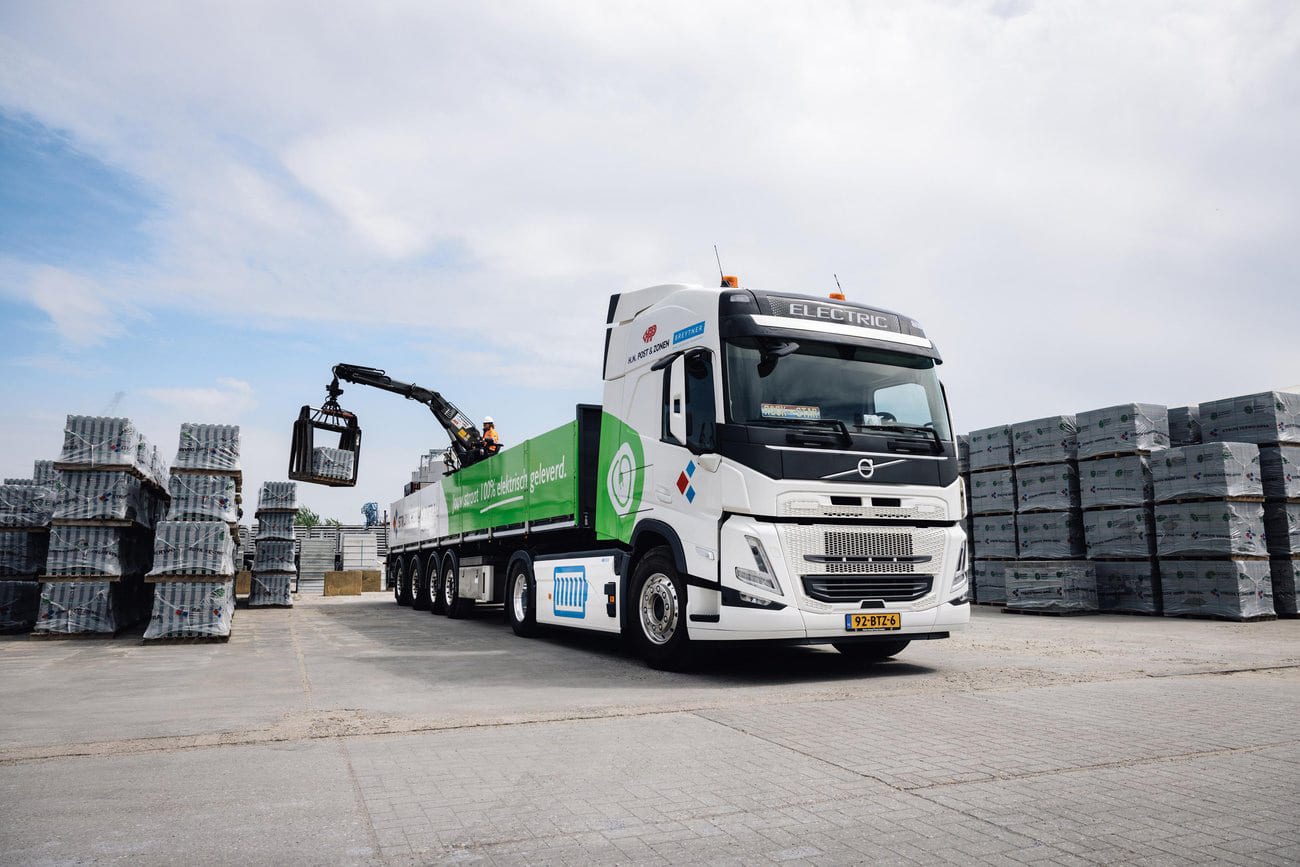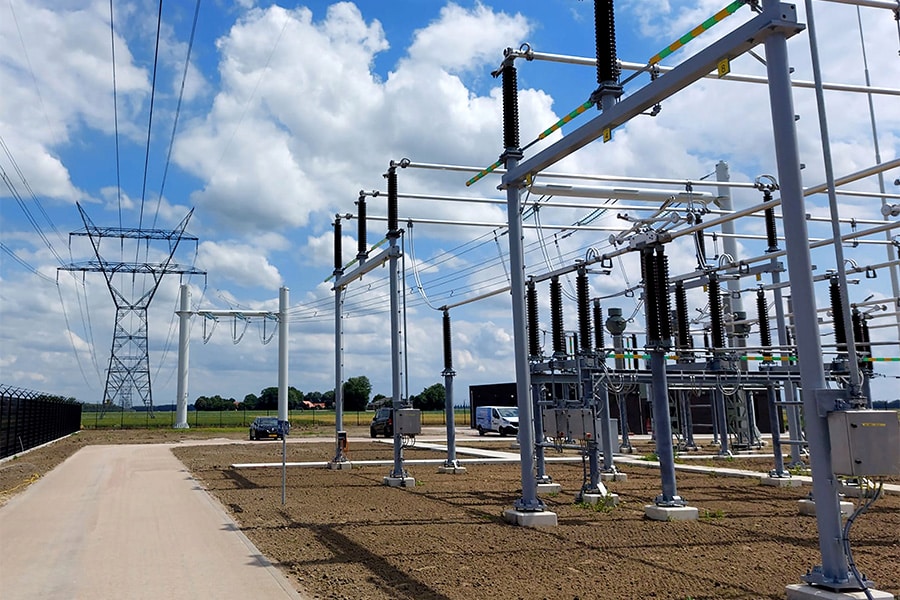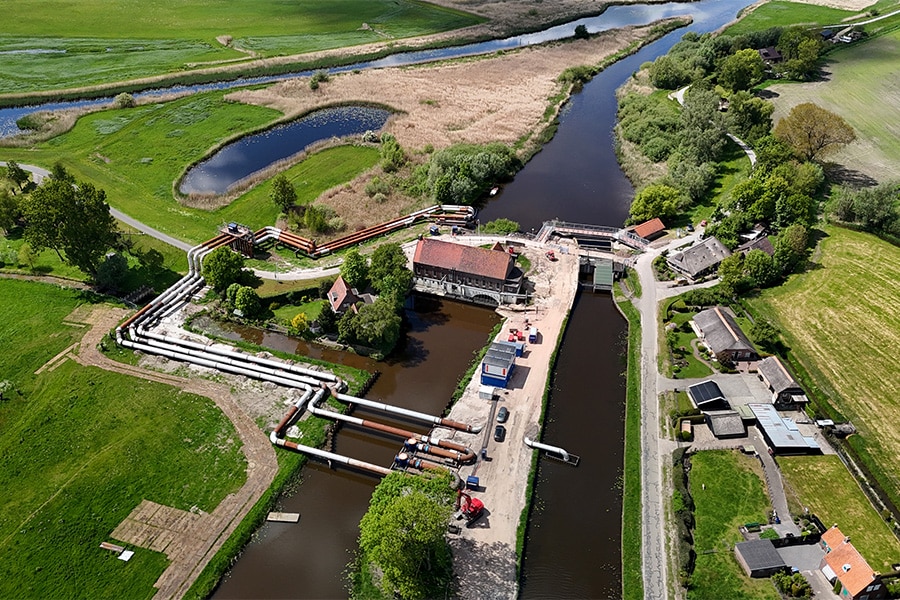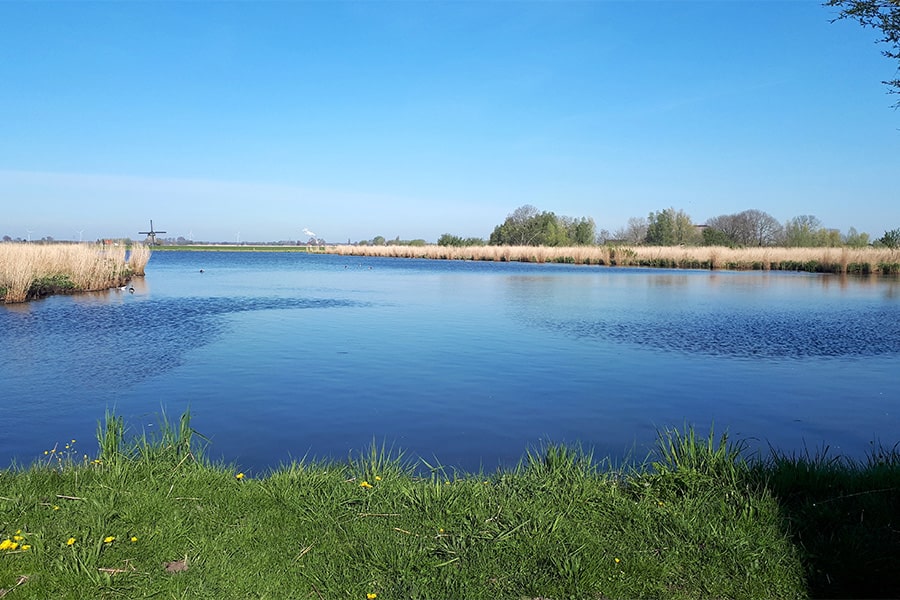
Bridge deck made of complete residual waste
Biocomposite as an alternative to hardwood
On the face of it, the Koningsbrug in Leiden is a bicycle and pedestrian bridge like many others. However, it is not. In fact, the bridge deck is made of biocomposite, from 100% upcycled residual waste. A beautiful and very sustainable alternative to hardwood.
"Innodeen's strength is that we work with clients to develop the best possible sustainable solutions and alternatives for a variety of applications. So we were asked from the chain whether we wanted to think along about a 'waste' bicycle and pedestrian bridge," says Jos Beverborg, Technical Sales Engineer at Innodeen. "In doing so, we were asked how circular the biocomposite we developed is. It already has a sustainability class 1, but we are always looking for better solutions and possibilities. Reason for us to take another critical look at our biocomposite."
Sustainably close
The original biocomposite consists of 72% softwood fibers, imported from Germany, and 28% virgin polypropylene. "A big gain we were able to achieve by not importing the components anymore but getting them closer to home. In cooperation with recycling company Rouwmaat from Enschede and Hogeschool Saxion, we investigated whether collected class A scrap wood, think pallets and packaging wood, could be ground into fibers suitable for our production line. Tests showed that the quality is just as mature as German softwood fibers." That got Innodeen thinking. Couldn't they also process polypropylene pellets from a recycling company? That indeed turned out to be the case, and from Veolia of Vroomshoop. "Here we take polypropylene regenerate which we process into our biocomposite. This would not have been conceivable twenty years ago, but today the recycling companies produce such high-quality material that you can't really call it demolition waste anymore."
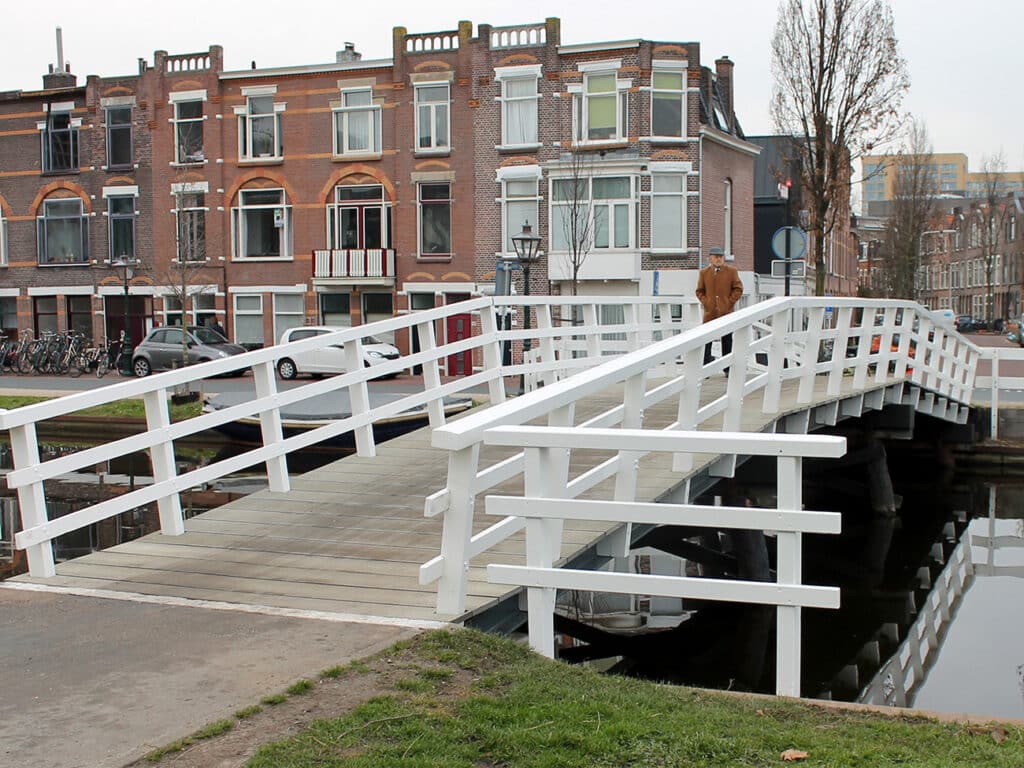
The first bridge in the Netherlands
The "new" biocomposite has been used in the bridge deck of the Koningsbrug, a bicycle and pedestrian bridge in Leiden. And so the Koningsbrug is the first bridge with a bridge deck made entirely of residual waste. Meanwhile, more similar bridges are on the list to be renovated in this way.
Price Competitive
"Now we want to take steps," Jos said. "With the Department of Public Works and the water boards, for example, we are investigating whether the existing hardwood bank revetment can be replaced by circular biocomposite. It's also very suitable for jetties, decking, cladding and fences. The beauty of biocomposite is that you can make distinct shapes with it and it is fresh, salt and brackish water resistant." As such, Innodeen is eager to get in touch with companies in the construction and civil engineering industries that are looking for a fully sustainable alternative to hardwood. "In time, I foresee that we will be able to make profiles that we currently don't know exist. And very importantly, in terms of price, it is competitive with regular materials. Moreover, this material can be recycled at least four times and, not unimportantly, CO2 stored in the wood."
